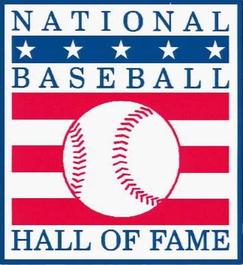|
The Baseball Hall of Fame takes the "country club mentality" very seriously when electing members to Cooperstown. Members of the Baseball Writers Association of America are partly to blame, but the other half is what is called "The Morals Clause." It is Rule 5 in the process of electing players to the Hall:
The "steroid era" players in Major League Baseball, whether they took PED's or not, are plagued by this clause. Players like Barry Bonds, Sammy Sosa, Mark McGwire and Roger Clemens may never land in Cooperstown. Putting the vote into the hands of baseball (and non-baseball) writers has lead to some favoritism and some voting on "what they've heard" about a guy who has played in this era of baseball. In 2013, not one player was elected to the Hall of Fame. A year later, Greg Maddux, Frank Thomas and Tom Glavine were elected. What got the headlines during the 2014 voting was Dan LeBatard giving his vote to the readers of Deadspin. Of course, the BBWAA was quick to revoke his voting privileges, but it did shine a light on the questionable voting process. This year's inductees are John Smoltz, Randy Johnson, Pedro Martinez and Craig Biggio. Three of the best pitchers from the 1990s and 2000s, and, no surprise, a second baseman who missed making the Hall of Fame by one vote in 2014, and is under the same microscope as the other big hitters of his era. The keyword here is "speculate" for baseball writers. They go by what they hear, who is in their inner circle, their sources, and at times, they do play favorites. This might be a reason why someone like Mike Piazza was not elected this year. All of this ends back at the "morals clause." The truth is...almost everyone in the Baseball Hall of Fame falls short of Rule 5. The first Hall of Fame inductees in 1936 were highlighted by the two men who got the most votes: Ty Cobb and Babe Ruth. Without a doubt, two of the best players in the game's first half century. But Cobb and Ruth don't exactly define the "morals clause." Ty Cobb was known for violent outbursts and being a bigot, and even bragged to a reporter that he may have killed a drifter. Babe Ruth was a fantastic pitcher for Boston and was the first home run hitter in the game after changes to the game. Especially pitching. He set a single season (60) and career home run record (714) that many said, at the time, would never be broken. Ruth was a great player, but he was a juvenile who was sent away by his parents and found baseball as an escape from that life. Many recall Ruth also being a womanizer and a drinker during his career as well. He once got up on top of the dugout to go after a heckler and called the crowd at the Polo Grounds "yellow." Luckily for Cobb and Ruth, there was no television in their era and radio was in its infancy. No internet, which meant no Facebook and Twitter to report their actions, and with the local newspaper reporter covering the beat (or the players in general), some or most of their escapades went unreported. Some might question Grover Cleveland Alexander's alcoholism in his later years. He was inducted into the Hall of Fame in 1938. A great pitcher. A pioneer in the early years of baseball, but he used alcohol as a coping mechanism for what he saw while serving in World War I. Baseball has had its moments defending morals and character. The banning of eight members of the 1919 White Sox after they threw the World Series against the Reds is one example. Speaking of Reds, Pete Rose was another life-long ban the game issued in 1989 to the all-time hits leader. Gambling on your own teams games and fixing championships are two issues many can get behind when discussing morals. The use of PED's is another one that the voters are taking seriously. There are players with a lot of evidence to prove they used steroids. Others, like Biggio and Piazza, are left to the "he said, she said" crowd to speculate when filling out a ballot. You could question the moral standing of John Smoltz, who once said that homosexuality was the same as bestiality, which, in regards to Curt Schilling's comments, would not make him a Democrat. Political affiliation does not determine a hall of famer. Let's hope it does not for these voters. Simply put, the Baseball Hall of Fame is not one of choir boys. We all have faults that may leave some to judge our moral standing. The same goes for every guy in Cooperstown, and those who had the numbers, but are bypassed every year due to PED use and suspicion of whether or not they did use them. Voting shall be based upon the player's record, playing ability, integrity, sportsmanship, character, and contributions to the team(s) on which the player played. No doubt the men in consideration and those who have been voted in have the numbers and contributed to the games success, but the part about "integrity, sportsmanship and character" do not apply to most of those already in, and many of the "steroid era" will wait longer to get in, or not get in whatsoever.
0 Comments
Leave a Reply. |
Archives
September 2018
|


 RSS Feed
RSS Feed
